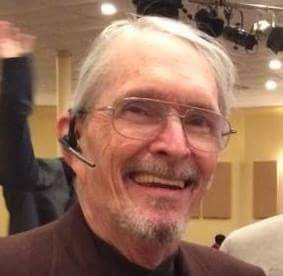The tightrope act spoken of in Paul’s word to Ephesus, 5:15, is not for fools. It takes precision, a sure footed walk and a certain pace. Insight and skill are essentials toward, “Buying up for yourselves the seasonable time,” — the opportune time afforded to you for the work of God,”– j.F.B. says “Special favorable seasons for good, occasionally presenting themselves, of which believers ought diligently to avail themselves.” The slip of foot can mean falling on broken glass in the analogy. Although the days are “evil,” and infection surrounds, this season is precious; a field to be bought for a pearl. Avail yourself to the opportunities. Each is but once in a lifetime. For such a time as this, we breathe. Our steps must be ordered, established, sure. Our pace in sync with the proper cadence, we press onward. Man plans the pathway, the Lord directs the steps. A…
Healing at the Cross Posts
“All emotions are, in essence, impulses to act, the instant plans for handling life…”– Daniel Goldman from his book, “Emotional intelligence” 1995. Daniel comes from a neural-scientific point of view; were talking about raw brain. “…the brain has two memory systems, one for ordinary facts and one for emotionally charged ones,” Goldman again. He quotes Joseph LeDoux from 1989-93. When alarmed, the amygdala (emotional brain center) sends an urgent message out. “It acts before there is full confirmation.” “It frantically commands that we react to the present, in ways that were imprinted long ago.” What? Yes, Goldman says “the message the amygdala sends is often ‘out of date.’” In a personal example of this, when I was a child I was placed on a horse with great fear of falling off. I feared horses for years after, and the very childhood fear, when triggered, panicked me again and anew. Problem;…
Before the great Civil War of America, slavery debates fomented and raged — In Virginia, debated, in Massachusetts, debated, in D.C. debated, in Louisiana, debated. In Santo Domingo, insurrection, in South Carolina trouble, in Virginia revolt. Publications, gag-orders, rationalizations, justifications, fear and greed topped the editorial pages. Seems to me that slavery, once adopted, created it’s own world and that, it’s own challenges, and that, it’s own addiction, and that, it’s needed detox, but that, it’s own frustration for any desiring rehabilitation. Though deliberated, opinions expressed, arguments made, the end of slavery required a war, of flesh and blood. Peaceable settlement ran faster than could be caught, positive advances were met with equalizing drag-backs, negative de-advance required a hero’s laid down life to reverse. Progress impossible, agitation grew like a festering boil, which finally erupted. We had a combat between good and evil, right and wrong, truth and lie, Satan…
Denial is “refusing to admit into awareness that which comes from one’s environment—e.g., what others say or do.” Job did this in Job 3. Repression is “the exclusion from awareness of troubling psychic contents.” Both definitions are from C.W. McLemore. Denial shuts out the outside; repression, what comes from within. Our fellow griever, Job, resorted to all defenses and later exposed an outward armor, in the face of God Himself. “Why did the knees receive me? Or why the breasts, that I should nurse? I call Job’s lament, “the exaltation of futility.” “For then I would have lain down and been quiet; I would have slept; then I would have been at rest.” Job 3:13-15 What was happening with Job? Every unconscious mechanism for the preservation of life seemed to effect its cover-up all at once, including a tough exteriored religious-duty filled response; but Job’s true colors shown brighter in the ongoing.…
Life is not without hindrance, nor our walk without encumbrance. Impediments characterize our earthly travelling, interruptions are familiar. We get holdups and stoppages, difficulties and deterrents; sometimes it seems that this is all. These interferers challenge us sometimes to the max. We are fed up or have had it up to here. We moan, Why? — why is everything so hard? I want to give you some solace, but first let’s try to find some out-of-the-box answers. Out-of-the-box happens when no “normal” answers suffice, but also, we fear a total breakdown or quitting. Daydreaming, illicit fantasy, or nonchalance is not what we mean by out-of-the-box. We cannot discard our concern, be indifferent or take on a new level of “cool.” Instead, we mean that the restrictive parameters of in-the-box thinking must be willing to face their ultimate death. They are simply not cutting the mustard for success. First of these for consideration: quit…
500 ft.- Noah’s Ark replica-Ky. “The meek will He guide in judgment; the humble will hear and be glad. The meek shall eat and be satisfied: they shall praise the Lord that seek him: your heart shall live forever.” 22:26 Psalms. “But the meek shall inherit the earth; and shall delight themselves in the abundance of peace.” Psalm 37:11. We as mere men wish to change the things, events, or circumstances having be-chanced our life journey. We want to scramble them, soften the blow. We cannot. We cannot candy-coat, muddle, spin or water-down. These things have befallen us, period. Their collateral damage will not suddenly un-frag, huddle, or conglomerate, nor will its wound close up right now. Perhaps a miracle of heaven awaits, but not yet. Instead of gall, jealousy, or spite, the meek lights upon something other; acceptance. Acquiescence, reception, acknowledgment, agreement, belief; do you see where this is taking us? Yes, to…
“How you feelin?” Bill Kraski loomed a giant among the weak. My first words to him were always, “how you feelin?” For as long as I knew him, Bill was a member of “the walking wounded;” sometimes seemed to be “dead men walking,” Just his appearance welled up tears in me — Till he started to converse. Authentic laughter Then came the smile, a little tease, then authentic laughter, now a return to a controlled face. “Okay!?” – was a half question/half reply — he “noted” my comments. “Okay?” Next came something that required deep thought, (some details were missing), nevertheless after a few queries, profundity occurred. Bill gave us, in a short sentence, hours of meditation; the baritone spoke as a news reporter. Bill spoke of his D.J. days, when prompted. I think he played “MacArthur Park” first of anybody. He liked Bela Fleck and anything “light jazz.” I…
I find that folks want to know what is “normal,” so to speak. Does a Christian fail a lot? Does he or she sin just a little? Maybe, less and less, or do we grow weaker with age and sin more? Where does our Achilles’ heel manifest itself? What is the operating mode for living above the fragility? Do we have a besetting sin? — Gray areas? Does the free volition function freely always, or is it hindered? Do most rebound from sin and failure regularly; agreeing with God about our sin, isolating sin from our true identity, forgetting what is past? Is it common to frequently commit the sin of unbelief in still living in guilt or regret? How’s the soul? Is there harmony? What branch of the soul dominates you? Are you an avid thinker, or a determiner; a feeling kind of person, or full of fear, or self-conscious? Are…
“For God is my record, how greatly I long after you all in the bowels of Jesus Christ” are the words of Philippians. What are these bowels? “All real spiritual love is but a portion of Christ’s love which yearns in all who are united to Him.” Henry Alford. Okay, Christ is the source, but what of bowels? “The word ‘bowels,’ in the Scriptures denotes the upper viscera – the region of the heart and lungs. That region was regarded as the seat of affection, sympathy, and compassion…” Barnes notes. Dr. Stevens associated bowels with emotions also. Are these the same bowels of mercies, kindness, humbleness of mind, meekness, longsuffering that we are to put on in Colossians 3:12? Yes, not just the words but the emotions. Caroline Leaf says that “when the thoughts move into the conscious mind, we feel the emotions of the thoughts.” So, when Bible words are invested…









